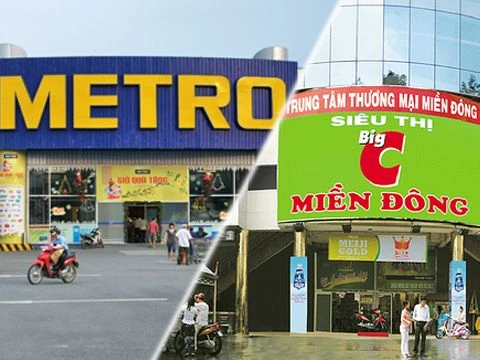
At a discussion with Sai Gon Investment, Vu Vinh Phu, a commerce expert, said that the competition in the Vietnamese retail market is not fair or transparent, and foreign retail companies have many more advantages than their domestic counterparts.
JOURNALIST: - What do you think about the incentives that Vietnam offers foreign retail companies even though we are not sure whether they will continue to invest in Vietnam in the long term?
VU VINH PHU: - A hot topic in the retail market recently is the news that Vingroup has acquired eight stores of Queenland Mart and turned them into Vinmart stores. This is one of many M&A deals of Vingroup to expand its retail market share.
The retail market in Vietnam is so attractive that many well-known brands from across the globe have entered this market in all segments from shopping and entertainment, to super markets and convenient stores. Consequently, M&A is inevitable when the market has so many players.
Previously, we mostly saw foreign companies acquiring domestic companies, or foreign companies buying out other foreign companies. Now, we see some domestic enterprises with strong financial base taking over retail chains of foreign companies. For example, Saigon Coop acquired Auchan and Vingroup took over Shop & Go.
However, the notable thing here is the transparency of M&A deals, and the issues of cost transfer in operations of these foreign companies and tax responsibilities.
For example, although Metro posted losses for many consecutive years, the company has still been expanding its business. Later, Metro was investigated and required to pay VND 500bn in back taxes. Lotte also reported huge losses but this news has not been confirmed by audit firms yet.
The Vice Chairman of a retail association said that most supermarkets have suffered losses, which is not completely true. We need audit to confirm this information. Saigon Coop, Vingroup and Hapro have made profits, so how can we say that other retail companies have faced losses too?
Currently, the tax incentive is not much, but the benefits from land bank are still there. The Thai investors, who bought Metro, must have also considered these benefits already. Foreign brands like Aeon, Big C, and Lotte have been built on prime real estate while many other domestic retail companies still find it hard to find a suitable location.
I know that there is a city in the North which has proactively constructed a land road because they are expecting Aeon to locate to that city. Would this happen if a domestic super market were to open there? One of the reasons for this issue is the attraction of having a ‘foreign brand’, and the fact that most authorities like to have a big international brand located in their province.
- Most foreign companies commit to investing hugely in Vietnam whether they enter Vietnam through M&A or self-investment. Does this mean they will invest in the long term in the domestic market?
- Most companies try to show an attractive plan when they start to invest. But we need to watch the things they do and what they bring to domestic producers and Vietnamese consumers.
Based on my observation, Vietnamese producers have been facing many barriers in putting their products on shelves of foreign retail chains. For example, Big C has suddenly stopped purchasing textile and garment products from domestic companies. The super market only started to order again when it received requirement from the government. In my opinion, Big C receives many advantages and incentives from Vietnamese authorities, but it does not treat Vietnamese producers and manufacturers fairly.
The contracts, the negotiations, the discount schemes are based on market mechanism. However, Vietnamese companies are mostly on the weaker side, hence, how can we expect the same response? The domestic products cannot display in foreign super markets, hence, foreign products will continue to have advantages, especially when tax rates reduce to 0% in accordance with the terms of FTAs.
- What about domestic companies in this tough competition?
- Over the last few years, domestic retail companies have been growing strongly and even acquiring some foreign companies which made losses in the Vietnamese market. However, most domestic retail companies have not been taken care of even when they treat local producers much more fairly. For example, Vinmart has reduced the discount for fresh product suppliers to 0% in one year.
The other thing that domestic companies need to take note of is they should integrate with each other both vertically and horizontally. The market is tough, but 50% of the reasons which cause the failure of domestic companies are internal problems.
- The issue here is the fair treatment in taxation, so in your opinion, what should we do to create faith and trust between foreign companies and domestic companies?
- Previously, when asked about a solution to this issue, I suggested that the government link the core system or sales software of retailers with the tax office system. This suggestion was appreciated by authorities and enterprises. From September 2019, about 50 retail points in Ha Noi and Ho Chi Minh City will be linked to the tax office. This solution will be applied massively from 2020.
This issue is under controversy though, as some companies support it, and some do not. However, it is obvious that transparency will surely exist in such an application and bring about more trust between domestic and foreign companies.
If this solution is applied, companies will no longer be required to inform or work with tax officers to clarify their revenues, and will save time and cost for all companies. The basic cost of computer or software is not high and the tax authorities will also find it easier to manage the retail companies.
- Thank you very much.




















